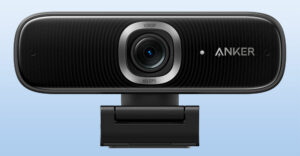
PC giant Dell signaled this week it will stretch the reach of wireless connectivity for its computers by using cellular phone networks and reportedly offering mobile phone subscriptions.
Although a spokesman for the U.S. PC maker dismissed reports that the company would offer mobile phone service, there was confirmation that Dell is looking to bridge the wireless worlds of computers and mobile phones.
The news, which came from Dell founder and chairman Michael Dell in a European press report, came at the same time Sony announced it was teaming with Cingular to provide a cellular-ready Vaio notebook, which is capable of both 802.11 WiFi and mobile network wireless connectivity using Cingular’s EDGE network.
Indications of Trend
Analysts disagreed on whether more hardware makers and mobile operators would look to duplicate the cellular PC efforts, which may have limited appeal and face the challenge of notebooks that are not replaced as frequently as mobile phones.
However, the fact that Dell — the world’s biggest PC seller — is building cellular access features into its computers and business model means others are likely to follow suit.
“Dell does a lot of experimenting and will try something out without too much investment,” IDC vice president Roger Kay told TechNewsWorld. “It does endorse the category. I think it’s a no-brainer that at some point, wide area connectivity with notebooks will be pretty standard stuff.”
More Mobile Machines
Kay said while there are a limited number of hardware vendors and wireless operators working to offer cellular PC capabilities and services, the move to make computing even more mobile than it is today is one that many companies are contemplating.
“We can expect to see a lot more of this,” he said.
Kay said although cellular PC features and functionality are likely to improve once large PC vendors — such as Sony and Dell — partner with mobile operators and compete on the basis of the increased wireless connectivity, there is also the challenge of building a PC that does not become obsolete in the face of wireless technology advances. While a mobile phone is typically replaced every two years, the lifetime of a laptop is three to five years, Kay said.
Catering to Consumers?
While Sony aimed its new Vaio T-Series squarely at mobile, corporate users, Dell’s indications to wed WiFi and cellular connectivity have implications for the consumer side of the market.
DataComm Research president Ira Brodsky told TechNewsWorld that although the cellular service for business users is easier for the companies to provide, there may be larger opportunities among non-enterprise users.
“I think the really big opportunity is going to be the consumer,” Brodsky said.
The analyst added the cellular services for PCs — which have been available through PC cards and subscriptions for a number of years — are becoming more ubiquitous with improvements in wireless networking technology, such as EDGE networks and wireless wide area networks (WWANs).
Cellular Service Succeeding
While he told TechNewsWorld the cellular wireless connectivity for PCs was already a hot technology, Yankee Group analyst John Jackson echoed other industry analysts by questioning whether the services could work given the longer life of PCs.
Jackson also indicated that workers are content to use PCMCIA cards with their existing notebooks to get the cellular connectivity if they want it.
“Certainly, the PCMCIA card market has been booming,” he said. “And it is poised for continued growth.”





















































